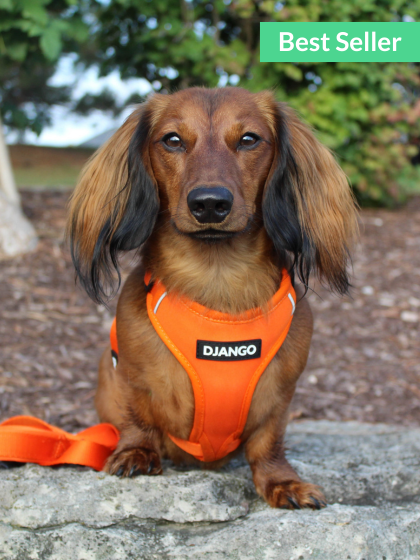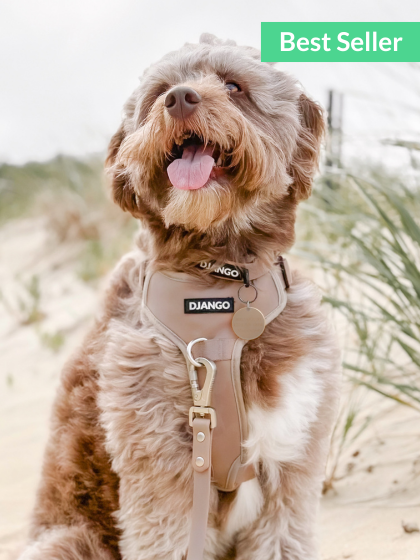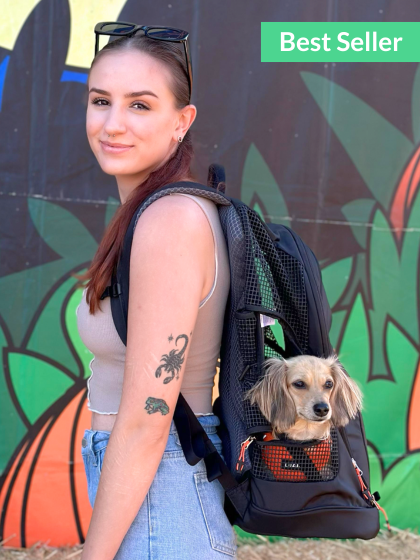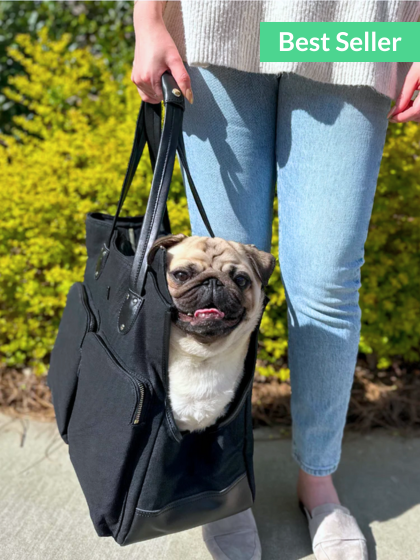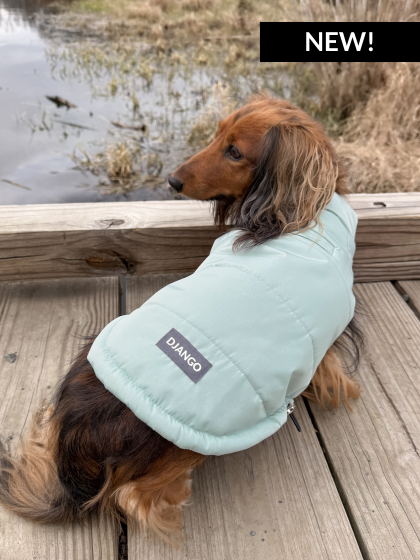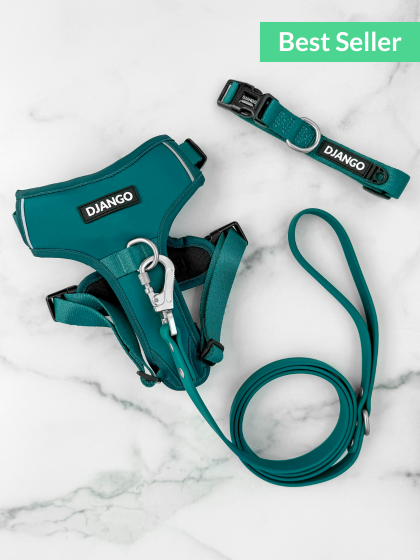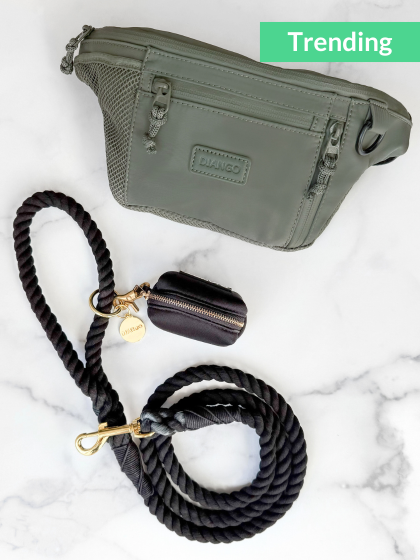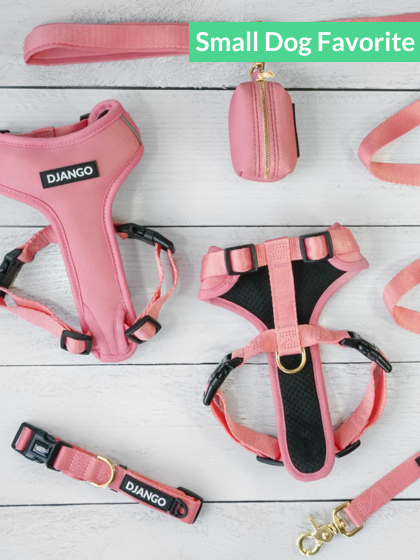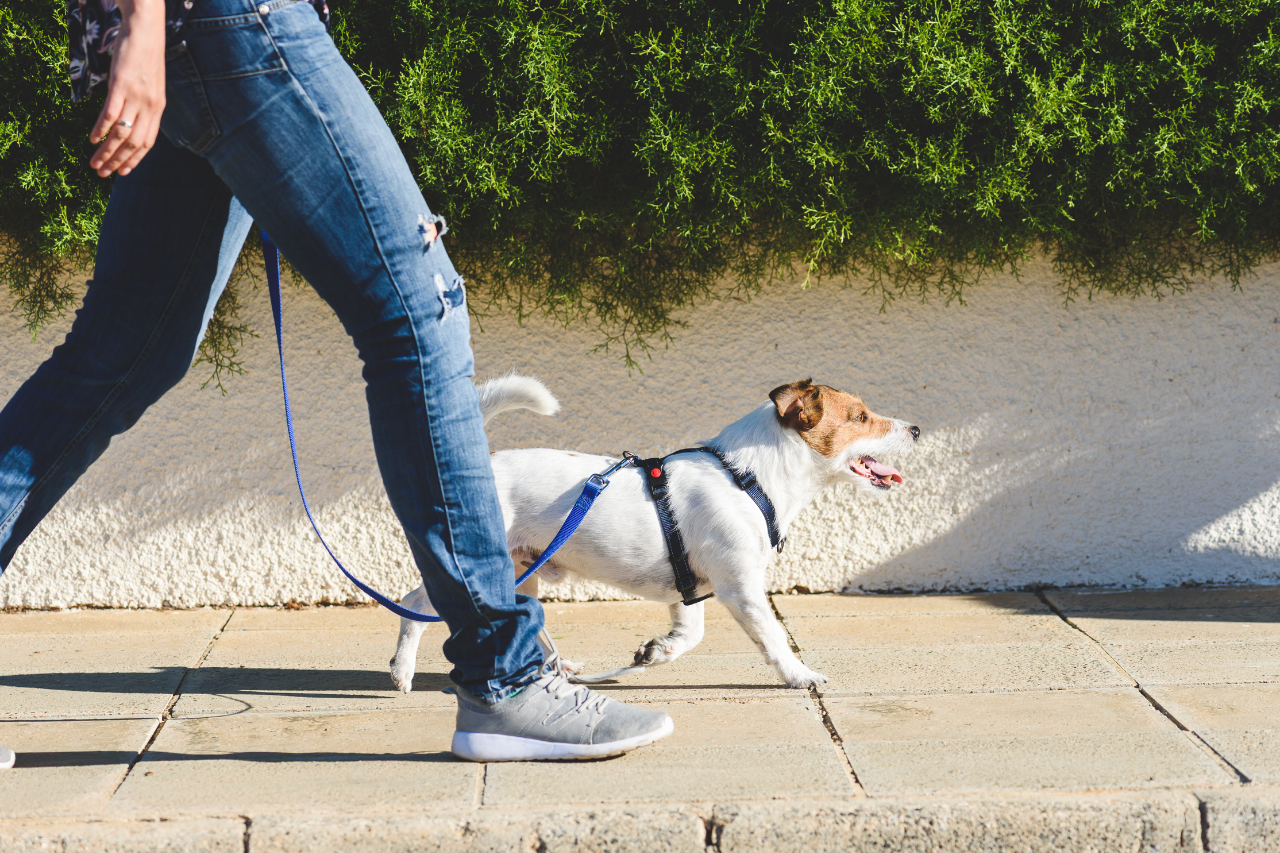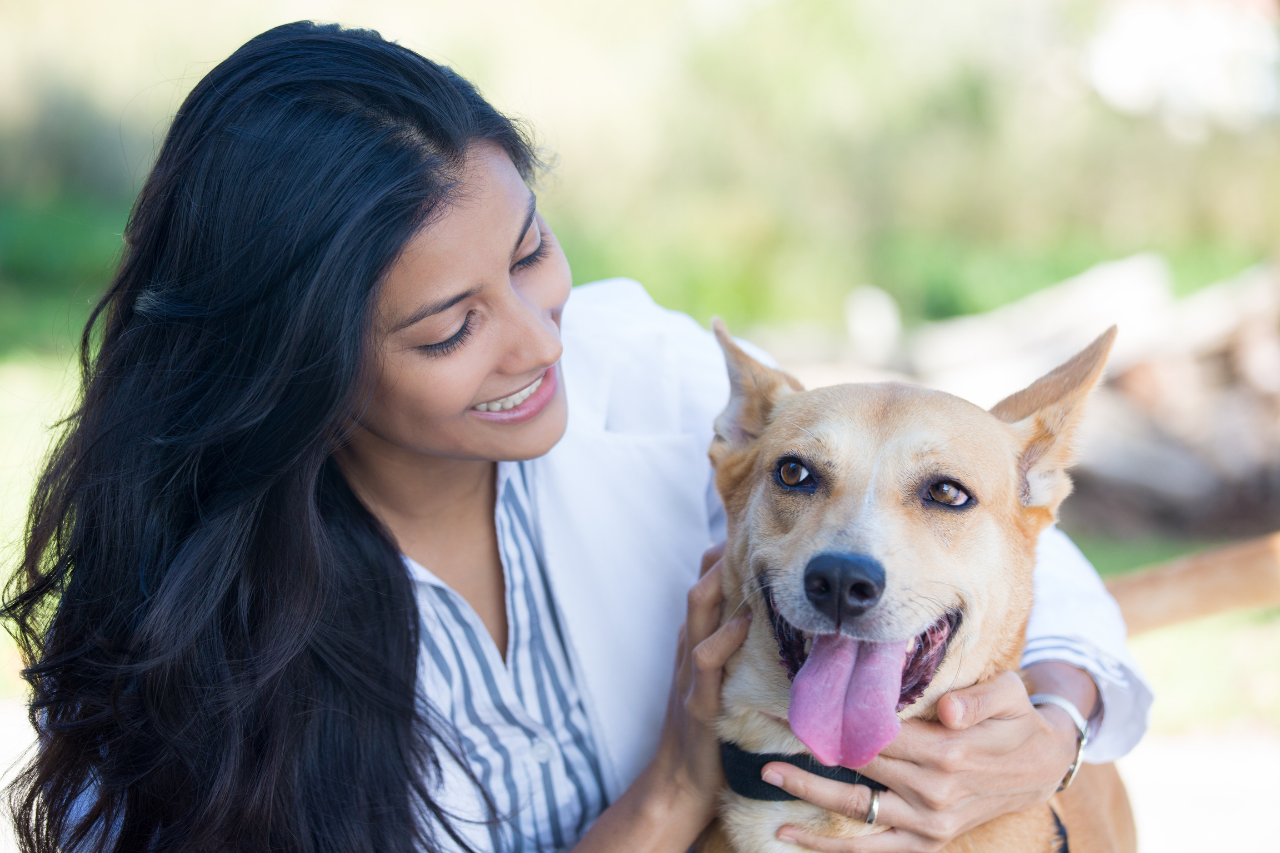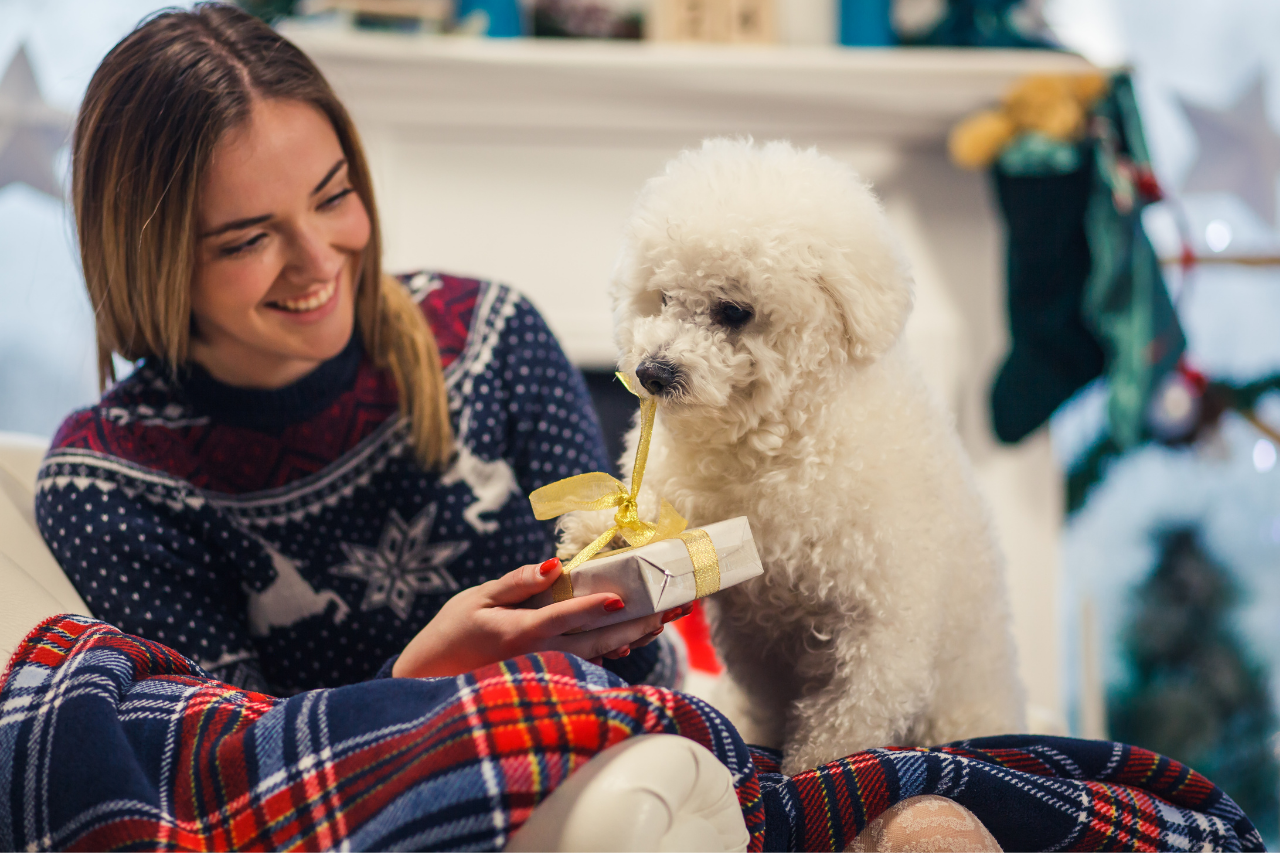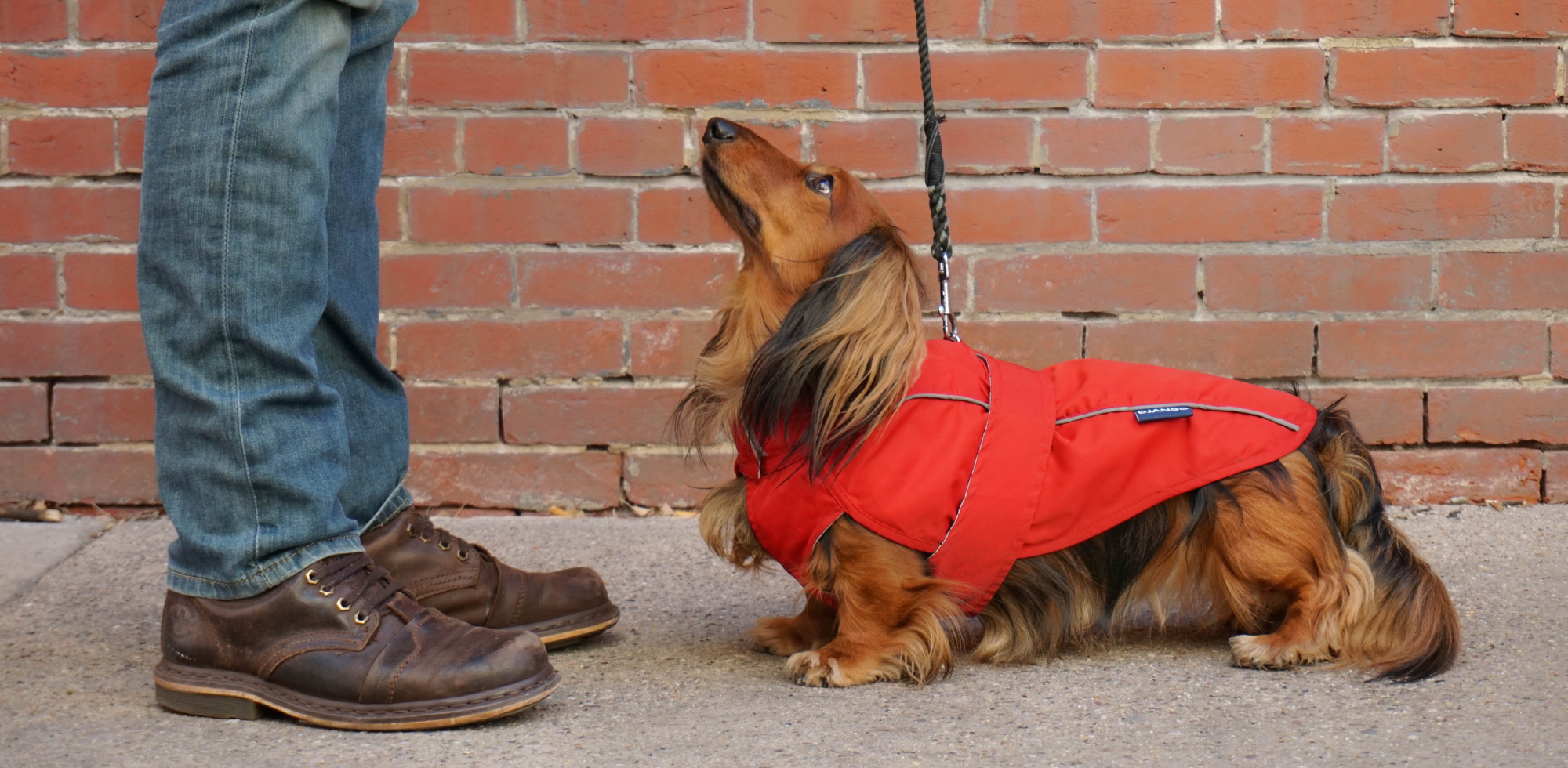This post is sponsored by Spot Dog Walkers.
Have you considered hiring a dog walker but don't know where to start? Hiring a dog walker for the first time can be a daunting process, and it is completely understandable if you have many unanswered questions! How can you find a reputable dog walker in your city or town? What is a reasonable amount to pay them? Do you have to provide the dog walker with a key to your home?
We partnered with Mitchell Park from Spot Dog Walkers to walk us through how to successfully hire dog walkers near you. In this DJANGO Dog Blog article, we answer every question you might have about hiring a dog walker for the first time. We also provide a 7-step checklist to safely hire your first dog walker.
If you have any questions or want to share one a personal dog walker experience with us and our dog loving community, please leave a comment below. We'd love to hear from you!
Why hire a dog walker?
The story of Bella and her Labrador Retriever puppy
Bella, a working mother of 2 very young children, recently decided she could use help with walking their energetic 4 month old Labrador Retriever puppy.
Over the course of the pandemic, Bella, her husband, and 2 children welcomed an adorable Lab puppy into their family. While they had most of their childcare needs figured out—the older child was in daycare and the younger child was cared for by a nanny—they hadn’t quite figured out a routine for their beautiful new puppy.
Labrador Retriever puppies are a bundle of energy and require a lot of outdoor exercise. Taking their Lab puppy for a 1 hour-long walk every morning before work, however, was impossible. Between taking care of her children and getting prepared for her work day, Bella realized she simply did not have enough time to walk her puppy in the morning and give him the exercise and stimulation he truly needed.
Yes, the puppy had mental stimulation toys and an open yard, but it quickly became clear that good old-fashioned exercise was needed. Before long, Bella began looking to hire a dog walker.
Do you need a dog walker?
Your reasons for hiring a dog walker might be different from Bella's. Your job, for instance, might require you to be in the office until 6pm each evening. Or perhaps you have limited mobility and cannot physically handle a long walk outdoors each morning.
Regardless of your exact situation, you are likely thinking about hiring a dog walker so you can reallocate the time you would’ve spent dog walking, and put it towards your work, children, errands, and/or passions. For working parents like Bella, 7 extra hours per week, week after week, might be the difference between burnout and feeling under control.
Your 7-Step Dog Walker Hiring Checklist
If you have thought about hiring a dog walker but stopped short because of unanswered questions and endless worries (i.e. how to find a dog walker near you, your dog’s safety and wellbeing, your home's security), then this next section is for you. In this section, we provide an easy-to-follow, 7-step checklist for hiring dog walkers.
We hope to answer all of your open questions so you come out the other side equipped with the knowledge of how to save yourself time, while ensuring your dog gets plenty of exercise. Is there something we didn't address? Just leave a comment below, and we'll get back to you!
#1. Understand your needs and your dog’s needs
For now, imagine that hiring dog walkers is affordable and completely safe—we’ll get to affordability and safety in later checklist steps! Simply picture a semi-retired, local mom in your neighborhood who has more experience than you in caring for and walking dogs. This woman would love to take your pup on walks.
If this experienced local mom and dog walker knocked on your door, what questions would you ask her? Perhaps you would ask what days she could walk your dog and for how long. Where would she walk your pup? Would she be able to feed him, if needed? Think about the most ideal scenario for fulfilling both your needs and your dog’s needs.
Main items to consider are: days of the week for dog walks, times of the walks for those days, and any special needs for your dog’s well being (i.e. medicine, food, etc).
What would be best for you?
As an example, let's assume both you and your partner are typically at the office between 9am and 5pm each day. With your dog mostly napping at home during this time, then ideally someone might come to your home and walk your dog for 30 minutes mid-morning and another 30 minutes in the afternoon.
If we use Bella's situation above, she would likely prefer to have a dog walker come first thing in the morning (when the dog's bladder is full and she's busy getting herself and her children ready for the day) and again in the early afternoon.
What would be best for your dog?
In terms of your dog’s needs, if your dog is the type who gets nervous around strangers, you may mentally note that: (a) if you hired a walker, your dog should meet your potential walker beforehand, and (b) you can ensure your dog is always wearing his dog harness or collar beforehand, so your walker doesn’t have to discomfort your dog by putting it on.
Generally speaking, this checklist step is also about being realistic about your busy schedule, and ensuring your dog’s mental and physical health isn’t a casualty of your busy schedule in the long run.
#2. Look around for dog walkers near you
If you’ve warmed up to the idea of getting a dog walker, then the next step is to look around for reputable dog walking services near you.
With this stage, you have 2 options.
- Option 1. A local, neighborhood dog walker, who you might find from a letterbox flyer, local classifieds, or a friend referral.
- Option 2. A company for dog walkers, such as Spot Dog Walkers (if you’re in Canada), Rover, or Wag.
Before deciding right off the bat which route you’d like to explore, know that both options have their respective advantages and disadvantages. Here is a quick comparison between the two types of dog walkers:
Option 1: Working with individual, local dog walkers
Advantages:- Interaction: typically more personal since you’re dealing with one person, and it’s a simple, neighborly transaction.
- Safety and Insurance: individuals offering dog walking services on their own may not provide pet insurance & home insurance.
- Availability: being a smaller operation, the availability not be as open to service your needs and your dog’s needs.
Option 2: Using a reputable company that offers dog walking services near you
Advantages- Safety and Insurance: Companies which offer dog walking usually provide both pet insurance and home insurance, with zero deductible to you in the rare event something happens.
- Availability: This is typically very strong because you can get connected with a larger network of vetted people in your neighborhood who have signed up as walkers.
- Interaction: Using a dog walking company is not usually as natural as meeting an individual dog walker in person. This is because you are using a website or app for scheduling and payment (as opposed to simply meeting in person and paying cash).
Start taking action! Make initial contact with dog walkers.
Now that you’ve got several options for hiring dog walkers, you might feel struck with option anxiety. But there is no need to worry. Consider approaching both options from a neutral position to see what feels right for you.
For Option 1 above, consider asking your veterinarian and any dog owning friends and family if they have a recommended dog walker or two. You can also contact a local animal hospital to see if they have any referrals. Once you have a few recommendations, reach out to 2-3 individual dog walkers to say hello and confirm their current availability.
For Option 2, go ahead and download a reputable dog walking company app on your phone or visit their website on your computer. We personally recommend Spot, Rover, and Wag. Browse their websites, review their policies, and read verified customer reviews.
Once you’ve zeroed-in on a few walker options that feel like they could work as dog walker options for you, then you’re ready to roll with the next checklist step of interviewing your walker candidates!
#3. Interview your walker candidates
After you’ve found, for example, 2 local individual walkers and 2 company options, which could serve as dog walking options, then it’s time to wear your employer hat and interview your walker candidates!
With local individual walkers, ask if they wouldn’t mind meeting your dog and you for 15 minutes. You can even ask them to do a 15 minute trial walk.
With company walkers, you should be able to find a few walkers near you with great ratings and reviews and request meet-and-greets. For example, Spot offers free meet-and-greets with dog walkers for dog owners who purchase a 5 or 10 walk package.
What to do when first meeting dog walker candidates
Upon meeting your walker, your job as a dog parent interviewer is to observe the walker, see how the walker interacts with your dog, and see how your pup responds and interacts with the walker. This is also a wonderful opportunity to learn more about the dog walker and ask meaningful questions.
Check list for the first time you meet a new dog walker:
- Ask yourself one simply question: Do you like the walker? In terms of observing, see how your dog responds to the dog walker candidate’s vibes (or energy, or anything you may call it). Usually, dog walkers get along great with dogs—after all, it’s what they do!—so, unless your dog usually has some nerves around strangers, see how they get along with each other. If they don’t immediately vibe, then observe if the walker tries to force love onto your dog, or if she’s confident to let your dog welcome her in time.
- Tell them everything about your dog! Next, when interviewing your walkers, tell them anything and everything about your pup; pretend it’s like doctor-patient confidentiality, but for dogs! Is your dog aggressive towards other dogs or humans? What sort of anxieties does your dog have? Does she or he have a tendency to lunge at squirrels? Has your dog ever bitten anyone or any other dog? Err on the side of giving out too much information. You’d only be setting your dog and your walker up for failure by skipping over any aggression issues your 150 lb mastiff may have. Essentially, you should be open (and glad in a way) if your walker candidate says she can’t walk your dog – not only does it signify an experienced walker (who knows her boundaries), but it’s the safer outcome in the long run.
- Ask them a lot of questions! For questions, here’s a shortlist of questions you can use to kick the conversation off. Most likely, in the moment of the conversation, new questions will spring to mind, or your candidate will have questions, so these are meant only as a springboard for the walker interview.
- Do you have any experience with similar breeds or sizes like my dog?
- Where will you walk my dog?
- Are your dog walks private or in groups?
- How long have you walked dogs as a job?
- Can you provide any client references?
- Does your dog like the walker? Finally, in interviewing your walker candidates, if you or your dog feel hesitant about hiring the walker, then move on. There are plenty of walkers out there, and you should be able to find someone who you wish could actually train your dog and who you can trust for months to come (as if you were hiring a nanny for your children).
Also, remember that you do not need to hire any of your candidates just yet! This will get covered in this next checklist step, which will involve getting to know their policies (including pricing, cancellation policies, and so on) to finally seal the deal.
#4. Know their policies as professionals (ideally their policies will be in writing)
Once you’ve narrowed your shortlist of walker candidates to 1 or 2 likely winners, then it is time for your due diligence check: double-checking their policies as professional service providers. This involves knowing their pricing, insurance, cancellation and refund policies, and other safety practices they prioritize.
Oftentimes, this is much more important with individual walkers. Large, reputable companies like Spot, Rover, and Wag are typically extremely clear on their professional policies.
Are there policies competitive?
To finalize your choice of walker, here are some extra questions to ask:
- Pricing: What are your prices and do you offer any discounts for packages?
- Insurance: Do you offer pet insurance and home insurance?
- Cancellations and refunds: How much notice do I have to give for cancellations, and when would you offer refunds?
- Other safety questions: Will you ever transport my dog in your car to start a walk? Are the walks always on-leash (as opposed to taking a dog to a dog park, for example)?
Using Spot as a Benchmark for Policy and Pricing
We'll use Spot Dog Walkers in Canada as an example of what a dog walking company should offer in terms of policy and pricing.
As of writing (November 2021), Spot Dog Walkers offers up to 20% off discounts. This means that a 60 minute dog walk can be as low as $22.60 CAD ($17.90 USD) per walk.
Spot also provides $30,000 of pet insurance in the rare event that your dog gets injured during the walk, and $5 million of home insurance.
If your walker is 1 minute late, Spot refunds the walk fully. And, on the note of safety, all of Spot's walks are private, on-leash, and they never involve driving in a car (they’re all within the dog owner's neighborhood).
Generally speaking, you should be able to find private dog walking options within the $20 to $25 range that are fully insured, private, and with easy refund policies. If your candidates don't provide that, see if you can haggle them down, or move onto a different dog walking option.
#5. Give your dog walker everything they need to properly walk your dog
If you have made it this far, then you’ve most likely made a decision on 1 or 2 dog walkers to test out, which is a huge step towards freeing up your schedule!
Now, keeping your employer/manager hat on, your next step is to make sure your walker has everything she needs to do an A+ job.
Ensuring your walker has all the tools needed
After dealing with payments, but before your first scheduled walk, here are some items to take care of. Remember that after your first walk, all of these items should lock into an automatic, easy rhythm.
- Walker entry: Offer a key lockbox or electronic keypad for your walker to safely enter your home (more on this vital topic below).
- Contact info: Give your walker your phone number and email address.
- Health info: Ensure your walker knows any health details about your dog.
- Supplies: Let your walker know where your dog’s leash, collar, and treats and located.
Frequently asked questions about dog walker entry:
Throughout this time, one key question which may be lingering in your mind is, "How does your dog walker walk your dog, if you’re not at home?". Here are some answers and recommendations to ensure complete safety for your dog and your home.
"Do I need to give my dog walker a key to my house?"
You do not have to give your walker a key to your house to walk your dog when you are not at home. Instead, you can provide them with either: (a) a key lockbox, or (b) the code for an electronic keypad.
Key lockboxes are used Spot Dog Walkers. Spot customers are given lockboxes free-of-charge once they’ve completed their first walk. The safety advantage with key lockboxes is that, although your walker has access to your house key, she never actually carries it around. Rather, the key is only ever used when entering or exiting your house. This has been shown to significantly lessen the risk of a break-in.
With electronic keypad entry, you can simply give your walker the electronic code to enter your house. In fact, with many electronic keypad locks these days, you can actually set the times when certain access codes work. This means that your walker’s code only works during the time when she must enter or exit your house.
"How do I prevent my dog walker from doing something ‘fishy’ in my house?"
No matter how extensive your your relationship is with your dog walker (or any service provider, for that matter), we always recommend hiding any obvious valuables like cash or credit cards when the person is planning to enter your home.
You can also consider installing an inexpensive camera at your house’s entrance. All experienced dog walkers are used to home cameras and security devices, and they shouldn’t have to enter your home much further than the entrance way.
Note that, if you choose to install a camera, be sure to let your walker know, as a simple courtesy. Not only will they fully understand, but they will appreciate that you gave them notice.
"What if my walker accidentally breaks something in my house?"
In the rare case where your walker accidentally knocks over your grandmother’s China, then this is where home insurance can kick in. As mentioned above, any reputable dog walking company should provide both pet and home insurance to cover the rare event that something goes awry during service.
Spot has actually never had to make either a pet insurance or home insurance claim in over 75,000 dog walks! But the company is prepared in case that day comes. Customers of Spot are covered with $5 million of zero-deductible home insurance, and other dog walking services provide similar, sizable insurance plans.
"How can I get over my concerns about letting a walker enter my home?"
It certainly takes courage to give your walker access to your home, but this is where choosing a reputable company and taking care of your due diligence comes in handy.
But make no mistake! At some point, you do have to cross your heart, trust your dog walker, and trust your friend who referred your walker to you.
For many dog owners, they have felt similar hesitations, taken the leap of faith— especially with the comfort of being covered by insurance—and have now incorporated dog walking help into their lives.
#6. Get feedback from your dog walker after the walk
After your dog’s walk is over, have a chat with your dog walker about how your dog behaved. Was it a B, A+, etc? Your walker has probably walked hundreds of dogs, and she can point out valuable feedback based on their experience to help your dog become more accustomed to dog walking in the future.
At Spot Dog Walkers, all dog walks are fully GPS-tracked with potty reports and video stories. This means that dog owners can see where the dog walker and dog go, where their dogs dog their business, and view videos of the walk itself.
Regarding potty reports, these can be especially useful and help you plan your pup's following walks accordingly.
#7. Get feedback from your dog after the walk
And of course, the last step is to get feedback from your dog after the walk!
Is your dog happy? Does your dog give off an energy of feeling content, once the walk is over? Is your dog sad to see your walker leave and/or excited to see your walker arrive? These are all great signs that your dog loves the new routine you have set up.
If everything seems great, then go ahead and give your dog walker or dog walking company a nice review! Especially for smaller businesses, leaving a positive review can truly be a difference maker in helping them have a great week.
One last thought.
All in all, hiring a dog walker doesn’t have to be complicated, stressful, and overwhelming. It certainly takes some up front energy to evaluate your needs, research dog walkers near you, interview your walkers, and pay for some trial walks. Done properly, however, finding a good dog walking will save you hours upon hours of time in the long run, while giving your dog a healthy, outdoor outlet for his or her energy!
We truly hope that you’ve found this information handy! Feel free to leave a message below in the comments section, if you have any thoughts or questions. Thank you!


